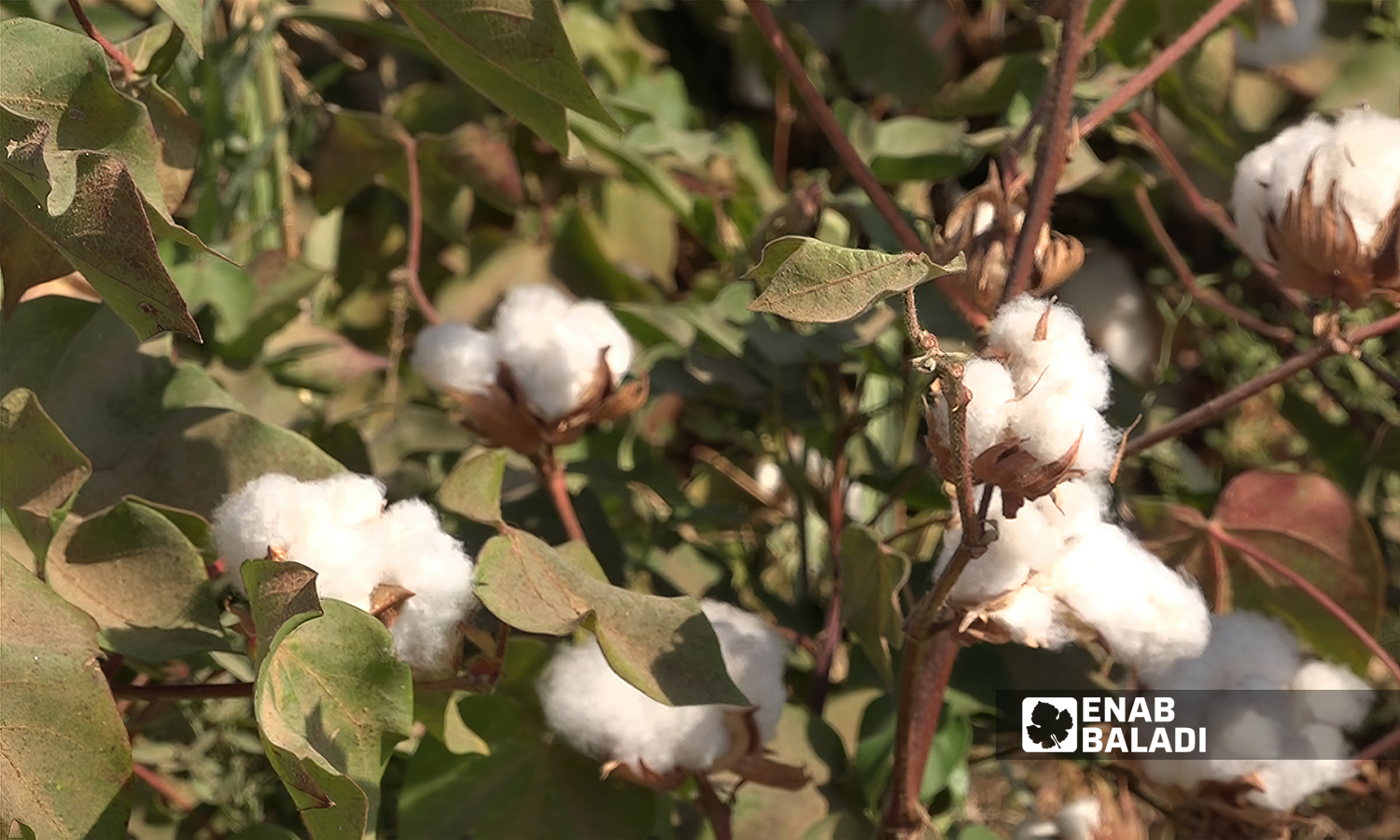



Abdulaziz al-Sabri, 40, did not prepare his agricultural land in the northeastern Raqqa region, as was his custom at this time of each year, to plant it with cotton, as the cotton crop is no longer as popular as before due to the low financial returns.
Al-Sabri and fellow farmers in the western countryside of Raqqa say that the cultivation of the cotton season has begun to retreat from the farmers’ priorities due to poor returns and the high costs required for its cultivation.
Mahmoud al-Shibli, 45, a farmer from the village of al-Salhabiya, was inflicted a heavy loss during the cotton season in 2021 due to the decline in the productivity of one dunum (1000 m²) to less than 100 kilograms.
Al-Shibli said that the production of a single dunum of cotton in previous years was more than 500 kilograms, while the productivity of a dunum decreased to less than 100 kilograms.
The production does not cover the costs that the farmer puts in during the season, which extends for about six months, and its cultivation begins at the beginning of April of each year, according to al-Shibli.
The cotton season in 2021 was affected by the weather conditions that prevailed due to the climate change that hit the region. In addition, weather fluctuations and severe heat waves caused the spread of worms that feed on cotton.
In addition to the reduction in the time and effort spent until the season is ripe and harvested, most of the farmers decided to plant corn instead of cotton, as its cost is lower compared to cotton.
According to the estimates of farmers who spoke to Enab Baladi, the cost of cultivating one acre of cotton this year is between 400,000 and 500,000 Syrian pounds (100 to 130 US dollars), while the cost of planting a dunum of corn drops to about 350 thousand Syrian pounds (90 US dollars), which includes the costs of seeds, fertilizers, irrigation, labor wages, and harvest.
A member of the Agriculture and Irrigation Committee in the Raqqa Civil Council told Enab Baladi that the committee decided to reduce the licenses granted to farmers regarding summer cultivation, including the area for cotton cultivation, in order to coordinate the distribution of fertilizers, pesticides, and seeds at subsidized prices.
The committee member added that the Autonomous Administration of North and East Syria (AANES) does not pay attention to cotton cultivation while encouraging the cultivation of wheat to achieve food security, even though it uses cotton seeds in the Administration’s oil and textile factories.
According to the agricultural committees and authorities in northeastern Syria, the total areas planted with cotton last year amounted to 49,000 hectares.
Cotton is the second most important agricultural crop after wheat in Syria, and the regions of northern and eastern Syria were at the fore in the list of Syrian regions in their production before 2011.
if you think the article contain wrong information or you have additional details Send Correction